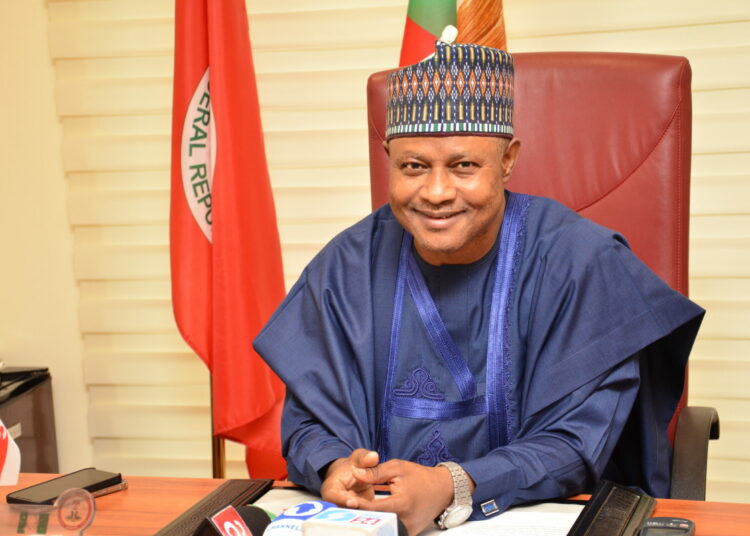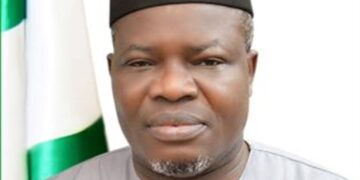He inherited a fractured landscape — and turned it into a construction site of hope.
A Governor for All
In Kaduna State today, construction cranes rise where suspicion once stood. Roads stretch into forgotten villages, hospitals hum with new equipment, and people who once felt excluded now find their voices echoed in Government House.
At the centre of this quiet revolution is Senator Uba Sani — activist, businessman, legislator, and bridge-builder — whose inclusive, reconciliatory leadership has restored faith in governance.
“Peace is not the absence of disagreement,” he often says, “but the presence of fairness.”
In just two years, he has transformed Kaduna from a state defined by division into one united by purpose.
Healing through Development
Governor Sani came to office in 2023 not as a career politician but as a citizen reformer. His first instinct was not politics — it was people.
He launched an unprecedented rural-urban renewal drive that has turned virtually every local government into a work zone. Roads, hospitals, schools, and markets are springing up with the same intensity across the 23 LGAs.
Among his most striking achievements:
225 primary healthcare centres upgraded to Level 2 status, with 174 already completed.
13 of 33 general hospitals fully rehabilitated and re-equipped.
A 300-bed Specialist Hospital, abandoned since 2009, completed and commissioned by President Bola Tinubu — ending a 16-year wait.
400 truckloads of fertiliser distributed free to 100,000 smallholder farmers, boosting yields and food security.
Each project tells a story of inclusion — of a governor determined that every Kaduna community, urban or rural, must feel the pulse of progress.
Infrastructure as Reconciliation
Sani’s philosophy is simple: development is the highest form of dialogue.
By spreading projects evenly across faith, tribe, and geography, he has rebuilt trust in a state long tested by its diversity.
Under his massive road expansion plan, kilometres of new highways now connect once-isolated rural economies to urban markets. Bridges do more than link towns — they symbolise reconnection between communities once divided by conflict.
Kaduna today is no longer defined by tension but by transformation.
Champion of Women and Youth
Governor Sani’s inclusivity extends to social policy. He is widely regarded as a champion of women’s empowerment and youth advancement.
Through the Uba Sani Foundation, thousands of young people have been trained in entrepreneurship, ICT, and vocational skills. Micro-grants and business starter packs have lifted women from dependency to enterprise.
He has equally opened doors in governance — appointing women and youth into strategic roles, sending a message that Kaduna’s future must be co-authored by all its citizens.
A Tri-Sector Leader
Before the red carpets of Government House, Uba Sani’s journey criss-crossed activism, business, and public service — a rare tri-sector blend that shapes his governance style.
Civil Society: As National Vice Chairman (North) of the Campaign for Democracy and later Deputy Chairman (North) of JACON under Chief Gani Fawehinmi, he helped organise the pro-democracy movement in northern Nigeria during the military era.
Business: A successful entrepreneur in telecommunications and real estate, he learned the discipline of risk and reward.
Government: As Senator (2019-2023), he chaired the Senate Committee on Banking, Insurance and Other Financial Institutions and sponsored key reforms that deepened Nigeria’s financial system.
This fusion of activism, enterprise, and policy has produced a leader who can protest injustice one day and negotiate peace the next.
Scholar, Strategist, Statesman
Born on December 31, 1970, in Zaria, Sani holds a Master’s in Finance from the University of Calabar, a Postgraduate Diploma in Business Administration from the University of Abuja, and a Higher National Diploma in Mechanical Engineering from Kaduna Polytechnic.
He is also an alumnus of the U.S. International Visitors and Leadership Program (IVLP) on “Volunteerism and NGO Management.”
This academic breadth mirrors his governing style — analytical, data-driven, yet deeply human.
From Parliament to the Podium
As a senator, Uba Sani left an indelible mark. Three of his bills received presidential assent — a rare feat — earning him recognition as Most Valuable Parliamentarian (MVP) of the 9th Senate and Overall Best Parliamentarian of the 9th National Assembly by OrderPaper Nigeria.
His legislative success foreshadowed the disciplined pragmatism he would later bring to Kaduna State.
Today, he serves as Vice Chairman of the Progressive Governors Forum and Coordinating Governor of the North-West, bridging state and federal priorities with quiet authority.
Leadership that Listens
In Kaduna, even critics concede that Sani governs with humility.
He engages communities before bulldozers move in, listens before he acts, and insists that empathy must precede enforcement. His open-door governance has restored confidence among traditional rulers, faith leaders, and civil-society groups.
It is no coincidence that peace meetings now outnumber protest rallies, and inter-communal partnerships have replaced barricades.
Recognition Rooted in Results
Governor Uba Sani’s Kaduna is not perfect, but it is progress in motion — a state where public trust is being rebuilt brick by brick.
His administration’s focus on infrastructure, healthcare, agriculture, and inclusivity has drawn admiration far beyond Nigeria’s borders.
He remains, at heart, the same activist who once marched for democracy — only now he builds it with roads, schools, and hospitals.





